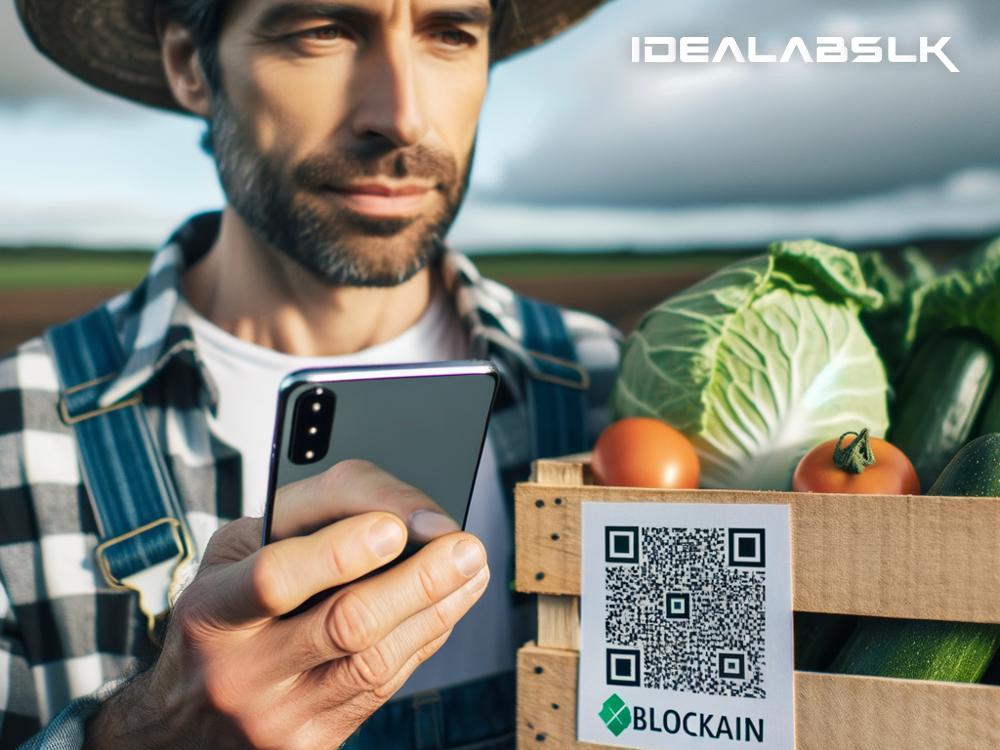Unlocking Trust: How Blockchain Powers Reliable Food Chains in Exported Goods
In today's global market, a head of lettuce or a bag of coffee beans can cross borders and continents before ever reaching your kitchen table. While this availability of diverse goods is a modern marvel, it's crucial to remember the complex paths these items take and the importance of ensuring their safety and reliability along the way. Enter blockchain technology, a term you've likely heard primarily in conversations about cryptocurrencies like Bitcoin. But beyond digital currencies, blockchain has transformative applications across various industries, especially in creating reliable food chains for exported goods. Let's dive into how this technology is making a significant impact on our global food systems.
What Is Blockchain?
At its core, blockchain is a type of database but with a twist. It's a decentralized, digital ledger that records transactions across many computers so that the record cannot be altered retroactively without the alteration of all subsequent blocks and the consensus of the network. This transparency and security make blockchain an ideal candidate for applications where trust, traceability, and transparent record-keeping are paramount.
The Challenge with Our Current Food Supply Chains
The journey of food from farm to fork is rarely straightforward. It involves multiple stages, including harvesting, processing, packing, shipping, and retailing. Each step in this complex chain offers room for mishaps, be it in the quality, safety, or the origins of the products. Traditionally, ensuring the credibility of this process involves heaps of paperwork and the potential for human error, fraud, and inefficiencies. Herein lies the problem—how can consumers and stakeholders trust the process and feel confident in the safety and source of their food?
Blockchain: A Door to Reliable Food Chains
Blockchain technology has shown significant promise in tackling these challenges by bringing an unprecedented level of transparency and efficiency to the food supply chain. Here are some ways blockchain is revolutionizing how we track and authenticate exported food goods:
1. Provenance Tracking: Blockchain makes it possible to trace the origin of food products in real time. By scanning a QR code, consumers can learn about a product's journey from farm to store shelf—where it was grown, processed, stored, and how it traveled. This visibility not only builds consumer trust but also empowers users to make informed choices based on the sustainability and ethical standards of the goods they purchase.
2. Reducing Fraud: Food fraud, where products are deliberately mislabeled or adulterated, costs the global food industry an estimated $40 billion annually. Blockchain's immutable ledger ensures that all records along the supply chain are tamper-proof, making it incredibly difficult for fraudulent activities to occur unnoticed.
3. Enhancing Safety: In the case of foodborne illnesses, every minute counts. Blockchain can significantly speed up identifying and isolating the source of contamination, potentially saving lives. By providing a clear record of every transaction and movement of goods, it becomes much easier to track down the problem, recall affected products, and prevent further spread.
4. Streamlining Processes: Traditional paper-based tracking systems can be slow, error-prone, and inefficient. Blockchain automates and digitizes these records, reducing the risk of human errors, cutting down administrative costs, and making the entire supply chain more efficient.
Success Stories and The Road Ahead
Several enterprises and organizations are already exploring how blockchain can be leveraged within their supply chains. For instance, giants like Walmart, Nestlé, and Unilever have embarked on blockchain projects aimed at enhancing traceability and reliability in their food chains. These efforts have shown promising results in improving food safety, reducing waste, and increasing transparency.
However, adopting blockchain is not without its challenges. Issues such as standardization, regulatory acceptance, and the need for industry-wide collaboration are hurdles that need to be addressed. Despite these obstacles, the potential benefits of blockchain for creating more reliable and transparent food chains are undeniable.
Wrapping Up
In a world where consumers are increasingly concerned about the safety, origin, and integrity of their food, blockchain technology emerges as a beacon of trust and transparency. By enabling accurate tracking, reducing fraud, and enhancing efficiency, blockchain has the potential to transform our global food supply chains. As we look to the future, it's clear that embracing this technology could be key to ensuring the reliability and sustainability of our food sources, making every bite we take not just delicious, but also trustworthy.

